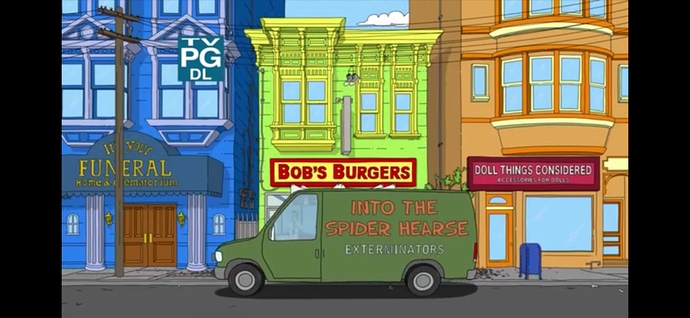I’m hoping there’s someone else out there who saw this film and is interested in exploring whether or not it has a storyform. I’ve written all of my ideas on the storyform here.
[details=Overall Story Throughline: Saving the multi-verse]First OS driver and the storybeats contained within:
- the Overall Story Throughline of PHYSICS: Tossing Spidey around and threatening the existence of the city. Causing an “earthquake”.
- the Overall Story Concern of DOING: Wilson Fisk starts the story off by Doing something dangerous: attempting to connect to parallel universes.
- the Overall Story Issue of SKILL: The villains are more powerful skilled than a weary Spider-Man and an inexperienced Spider-Man.
- the Overall Story Problem of TEST: The villains Test the limits of some sort of particle accelerator that could destroy the city.
The closing driver is when Miles destroys the accelerator.
The OS of Into the Spider-Verse consists of a team of various Spider heroes retaliating against evil villains who threaten the balance of the multi-verse.[/details]
[details=Main Character Throughline: Miles Morales]The First MC driver: Being bit by a spider, and the effects of that bite. This driver showcases the storybeats of:
- the Main Character Throughline of SITUATION: Struggling to control new powers, getting stuck in sticky situations
- the Main Character Concern of PROGRESS: Experiencing “puberty”, aka: growing into a Spider-Man. Struggling with uncontrollable new powers.
- the Main Character Issue of FANTASY: Fantasy is “belief in something unreal”. Miles initially misplaces his belief in the idea that he is experiencing puberty, rather than the Facts of his situation.
- the Main Character Problem of TEST: Miles questions his validity as a new Spider-Man. There can only be one Spider-Man, right?
The MC Throughline poses the exact question: “Can I be Spider-Man?”. Miles continues to question his validity as Spider-Man throughout the story.
By the end of the story, Miles has answered that question with the solution: “You can be Spider-Man”. Take a leap of faith. Trust in yourself, and you can become Spider-Man. He Changes when he literally takes a leap of faith, and then remains Changed for the rest of the story.
- MC THROUGHLINE: Situation. Struggling to grow into a Spider-Man.
- MC CONCERN: Things are changing for the worse. New school, struggling to gain control of new powers. Oh, and also discovering who his Uncle is.
- MC ISSUE: Fantasy. Not so sure on examples of this.
-
MC PROBLEM: Testing one’s validity as Spider-Man. One moment is the scene where all the other Spider people pressure Miles and cause him to question whether he’s really capable of being Spider-Man.
[/details]
Not as clear on the RS or IC throughlines.
[details=RS Throughline: Father/Teacher-Son/Student?]
The non-accuracy/vagueness of Peter’s lessons to Miles damages their relationship.
When he actually gives Miles specific instructions, there is no conflict in their relationship. Like when they swing and “Thwip!” in the forest.
I think their relationship closes when Peter asks how he knows Miles is going to be okay, to which Miles responds: “You don’t.” And then I think he also says: “It’s a leap of faith”. This shows not only that Miles has Changed as the MC, but that he has an accurate understanding of what it means to be Spider-Man. The two of them can part ways, at peace in their relationship.
Also, the scene of Miles unwillingness to respond to his dad with “I love you” at the start, the way he would rather just vaguely respond “I know”…
Even though that scene might be before the story starts, I think it sets up RS moments with his dad, especially towards the end. Like when Miles (as Spider-Man) clearly tells his dad he loves him. Or maybe that means something else.[/details]
IC Throughline: Spider-Man? Dad?
When it comes to the IC throughline, I can’t exactly think of moments where something a character did actually impacted Miles to Change. Mainly just the line, “it’s a leap of faith”, and that’s obviously not enough for an accurate representation of the IC Throughline.
[details=Story Points]Resolve: Changed. He takes that leap of faith.
Driver: Action
Limit: Optionlock. I could argue on why, but there’s not really a point considering there’s no timelock in the film to oppose the idea of an optionlock.
Outcome: Success. The protagonists achieve their goal of destroying the particle accelerator (and they return to their universes).
Judgement: Good. Miles is smiling and happy at the end. The characters have all returned to enjoy their respective universes.
Approach: Do-er
Problem-Solving Style: Linear? Mainly because I feel like I would notice if the problem solving style was Holistic. Maybe I’m wrong.[/details]
If the OS is Physics, and the MC throughline is Universe, then the growth is going to be Stop. I might have a problem with that, because I feel like the problem isn’t so much that Miles needs to stop testing himself as much as it is that he needs to start trusting. I feel like the argument is sort of along the lines of, “If you begin to trust that you can be Spider-Man, then you can become the hero to save the multi-verse.”
I’d appreciate any thoughts on what the storyform could be, or on how my own ideas of it are right or wrong.



